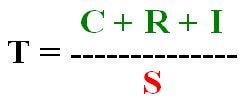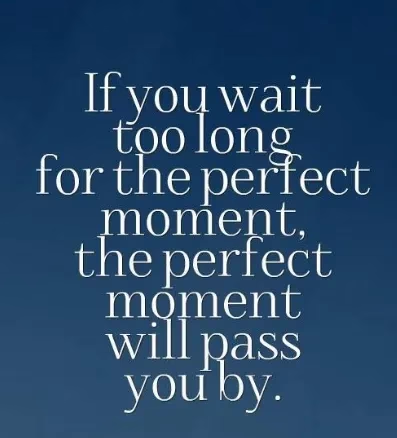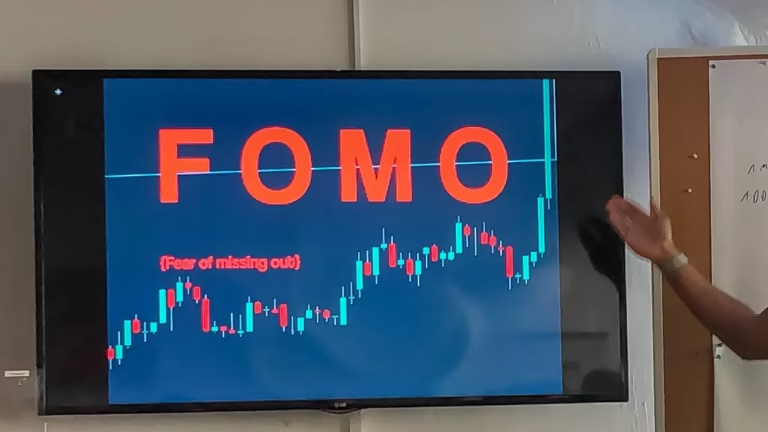Have we lost the ability to trust or even figure out how it works?
I have written about trust a number of times in the past. Based on the recent developments in our pandemic-ridden world, I had reason to review my past work on the topic. That lead to the question in the title of today’s article. Before we get into the details, let’s again look at some definitions of the term. Here’s the simple dictionary definition of Trust:
“Firm reliance on the integrity, ability, or character of a person or thing.”
Many times when the topic is discussed, the term “party” is used. It’s not a political party but expresses two sides of an argument or two sides of a dispute or two sides of an issue where each side is called “a party”. According to Wikipedia, in the social sciences, the subtleties of trust are a subject of ongoing research. In sociology (and psychology) the degree to which one party trusts another is a measure of belief in the honesty, benevolence, and competence of the other party. Based on the most recent research, a failure in trust may be forgiven more easily if it is interpreted as a failure of competence rather than a lack of benevolence or honesty.
From this perspective, trust is a mental state, which cannot be measured directly. Confidence in the results of trusting may be measured through behavior, or alternatively, one can measure self-reported trust.
When you look at this description in our current world and environment, you could ask if you can determine the result of trusting in the validity of an election. The same would be true if you were to ask what the results would be if you were to believe in a person and the honest intentions of that person to do what he or she said they would do.
In many cases recently we have struggled more and more because one of the foundations of trust is truth and fact. As we are exposed to a growing avalanche of statements and claims that later turn out to be false, lies, half-truths, etc. it gets harder and harder to fully trust anything.
I have often wondered what the explanation could be for the fact that in each election in the last 25 years the majority of incumbents are reelected, but then you ask voters of either political affiliation they would tell you that they don’t trust politicians; they don’t trust congress; they think that the people in all government institutions are performing horribly. How then is it that the same people keep getting reelected? I don’t think it is really trusting that they are suddenly going to do much better than the years we have seen before. I can’t figure it out but I have the impression trust or the lack thereof has something to do with it.
At another place while researching the topic I found a definition for “trust” from James Samuel Coleman I like a lot, even though it is a bit lengthy:
- Placement of trust allows actions that otherwise are not possible (i.e. trust allows actions to be conducted based on incomplete information on the case in hand).
- The person in whom trust is placed (trustee) is trustworthy, then the trustor will be better off than if he or she had not trusted. Conversely, if the trustee is not trustworthy, then the trustor will be worse off than if he or she had not trusted (this is reminiscent of a classical prisoner’s dilemma).
- Trust is an action that involves a voluntary transfer of resources (physical, financial, intellectual, or temporal) from the truster to the trustee with no real commitment from the trustee (again prisoner’s dilemma).
- A time lag exists between the extension of trust and the result of the trusting behavior.
The strength of Coleman’s definition is that it allows for a discussion of trust behavior. These discussions have been particularly useful in reasoning about human-computer trust and trust behaviors. In general, trust is something that isn’t easily developed. Peter Drucker, the management guru, once stated:
“It can easily take 20 years to build deep trust, and it can all be gone in 5 minutes”.
Because of this fact, I went back to my learning about this phenomenon. What had happened? As the owner of our company, I have been working very closely for one of our main clients. Initially, we were contracted because a financial problem seemed hard to solve. We were able to solve it pretty quickly, which increased trust — or so I thought. Work continued and expanded and became a major source of revenue for the client over the years. Communication was intense, frequent, and addressing more and more details. Then, suddenly, we received a message in which we were accused of false invoicing and unauthorized activities.
As you can imagine, I was surprised, shocked, and wondered how these accusations can occur in such a trust-filled relationship. I never thought anybody could bring these thoughts together with our name or the members of our company. I asked myself:
Is Trust a Matter of Perspective?
Is my understanding of trust something different than the view of the other company which contracted us to provide services? It brought me back to the Trust Equation.

The letters of this equation mean the following:
Credibility has to do with the words we speak. In a sentence, we might say, “I can trust what she says about intellectual property; she is very credible on the subject.
By contrast, Reliability has to do with actions. We might say, for example, “If he says he’ll deliver the product tomorrow, I trust him, because he’s dependable.”
Intimacy refers to the safety or security that we feel when entrusting someone with something. We might say, “I can trust her with that information; she’s never violated my confidentiality before, and she would never embarrass me.”
Self-orientation refers to the focus of the person in question: in particular, whether the person’s focus is primarily on himself or herself, or on the other person.
What happened in the relationship between our client and our company is a vastly diverging level of self-orientation. While we have seen all activities as part of the common goals, the client has seen everything as a means to an increased self-orientation. In their view, everything has to be cut to the bone and oriented on maximum profit, benefiting the short term, rather than a long-term perspective.
Where we put maximum emphasis on developing lasting relationships, the client wanted to see what the shortest path to maximize profits would be.
When we used the full volume of work allowed by our contracts, the client wanted a fraction of this volume — just enough to get by. Our pleadings for maintenance of a certain level of support to ensure the future motivation of everybody involved fell on deaf ears.
For the Equation of Trust, the increase in self-orientation will automatically lead to less trust and, as in our case, to accusations. The perspective of our client turned into false assumptions because the main focus regarding trust was and is different than the focus we have.
Yahoo recently conducted a survey asking people if lost trust can be regained or repaired?
The majority of respondents stated that trust cannot be found again after it has been lost — at least not the same, pure, unequivocal trust. Some people suggested that time can cure the wounds and some trust — more looking like respect based on actions — can be regained.
I have said many times in the last two years that the things we have done as a country to the relationships with our alleys will fall into this category. Countries like Canada, Germany, France, and many more have been accused of actions or economic activity that supposedly harm our national and security interests and therefore required us to apply tariffs and sanctions.
To me, that is the equivalent of accusing someone you trusted and worked with very closely for many years of harming you through something they did to you. In this case, it’s not even something new or where we took the time to express our view and complain about potential consequences. We just out of the blue took retaliatory action, pretty much without warning.
I believe, like many of the people in the Yahoo survey, that you can’t get back to the same level of trust, even if the people in charge change. There will always be the nagging question if this accusation to perspective could come back in the future. That’s also why Per Drucker is so right to call it”…destroy in 5 minutes.”
Studying this topic further, I found some interesting information regarding the flip side of this coin — mistrust. The source I liked the most for its comprehensive description is called Slow Leadership. There I found the following nuggets (condensed and paraphrased):
Trust is a scarce commodity in public and commercial life. This lack sets up a negative cycle that produces many of the ills that afflict business and society throughout the developed world.
Imagine a workplace or relationship between organizations, like our client and our company, where mistrust has become the natural starting point.
Members of the companies who feel impotent and devalued are quickly alienated from the organization of which they’re apart. No amount of fine words about “people are our greatest asset” will change this. Faced with a choice between believing what they hear or what they experience, people trust their experience every time.
What they know is that there’s a group of people similar to themselves (“us”), who are treated as having little value beyond their ability to follow orders passed down from above (by “them”). The inevitable result is to create sharp divisions and heighten feelings of mistrust.
Executives stereotype their subordinates, treating them much like awkward, disaffected, and difficult teenagers.
The employees or contractual partners view their bosses/counterparts like domineering parents, always ready to interfere with sharp criticism and harsh injunctions to do as they’re told.
Employees/counterparts are convinced that their leaders are power-crazed martinets, who enjoy nothing better than making themselves look good at other people’s expense. In such an environment, mistrust grows steadily. The negative cycle continues without end.
It does not have to be like this.

Let’s consider the alternative: a workplace/contract relationship where trust is seen as essential to good management and good business.
Leaders who hold themselves open to trust are quick to delegate. What’s more, they delegate fully and include decisions of real importance, believing it’s their job to help their subordinates/contract partners to the point where they’re fully capable of handling just about all the decisions that most closely affect the jobs at hand.
Decisions are always shared, even where the leaders still make the final determination. As a result, people experience being valued and trusted. They know they’re important to the organization because that’s how they’re treated. They know they’re valuable.
People who are deeply involved in an enterprise will not willingly see it fail.
People who value others find themselves highly valued.
Those who trust others are trusted in return.
You cannot purchase the results of this cycle of mutual trust, no matter how high the salaries you offer.
You cannot produce it by any means save trusting in trust itself and in its power to transform the most superficially unlikely people into colleagues whose contribution will amaze you.
The cycle of mistrust produces outcomes that swiftly reduce the workplace to a place where people tolerate only so long as they fear unemployment/loss of contract, or can extract material rewards they cannot find elsewhere.
The cycle of trust creates the kind of organization where people happily work to their full capacity, sometimes for monetary rewards below those they could find in other jobs.
So what do you do when you discover that your trust has been trampled — or even worse- when you discover that you had given all the trust you could, but the other party really only increased self-orientation steadily?
If you can afford it, you can quit — and hope to find a new relationship, as an employee or contract partner, in which good starting intentions are provided.
You can learn to ask more questions and make sure that the trust you have and extent is reciprocated.
You can hope that time will heal some of the wounds and allow for a respectful relationship in the future.
Trust shouldn’t be a matter of perspective.
To make sure it isn’t, both sides need to communicate and frequently make sure that the trust that each side perceives really exists. If there is doubt, it needs to be addressed as early as possible.
In the end, I think the type of untainted, clean, pure trust you had when the relationship started cannot be regained if it is lost by either side.
It’s a little like virginity: when that is lost, it is gone. There are many other states that can be developed, but one cannot go back and become a virgin again.
The sad part is that trust is such a valuable commodity that playing with it in a careless way and ultimately losing it is most often a cause for great regret.
My advice: Be very careful when toying around with trust. Make sure the trust you think you have exists to a similar degree in the mind of your partners and always secure that you don’t ever give reasons for anybody to lose their trust in you.




